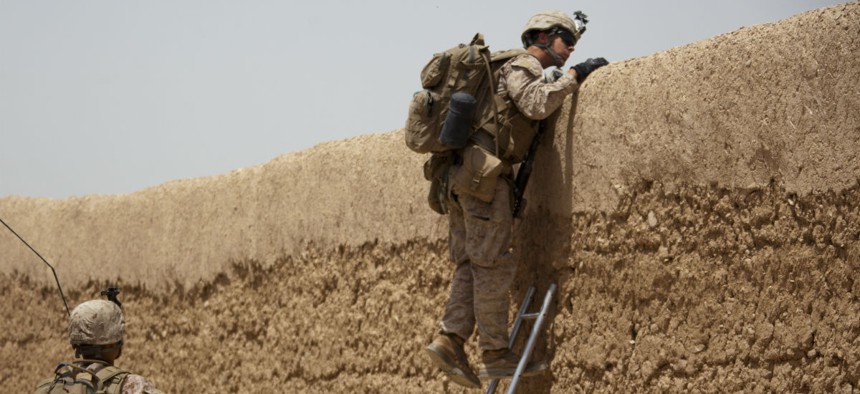
Sgt. Logan Pierce / Defense Department file photo
2.1 Percent Troop Pay Raise Moves Ahead in House
Appropriators on Tuesday approved a military pay increase in the fiscal 2017 Defense spending bill, following the lead of the Armed Services panel.
House appropriators on Tuesday approved a 2.1 percent pay raise for troops next year.
The House Appropriations Committee reported out the fiscal 2017 Defense spending bill, which includes the pay boost. The 2.1 percent increase is 0.5 percentage points higher than the 1.6 percent raise President Obama recommended for the military and civilians in his fiscal 2017 budget.
The Senate Armed Services Committee last week approved a 1.6 percent pay raise for service members in its 2017 National Defense Authorization Act, setting up a debate between the two chambers on the final number. The NDAA, which the full House began debating on Tuesday, is the Defense policy legislation that appropriators base their spending bill on.
The fiscal 2017 Defense spending bill, which provides $517.1 billion in discretionary funding, also includes $58.6 billion in Overseas Contingency Operations money for military operations abroad. The Appropriations Committee followed the controversial lead of the Armed Services Committee, shifting roughly $16 billion from that pot to pay for things like equipment and infrastructure upgrades in the Pentagon’s base budget.
“These funds are targeted to requirements identified by the services – readiness efforts, infrastructure, and equipment recapitalization and modernization, such as additional flying and steaming hours, training time, and facilities and aircraft repairs,” said Appropriations Committee Chairman Hal Rogers, R-Ky., during the markup.
Some of the OCO money will go toward “denying the troop reductions proposed by the White House and adding 28,715 active forces and 25,000 selected reserve forces above the requested levels,” said a committee statement.
The spending legislation also includes $34 billion for military health care, including TRICARE. The House version of the NDAA, which the White House threatened on Tuesday to veto in part because of the 2.1 percent pay raise, would create a new TRICARE enrollment fee for active-duty service members who join the military after Jan. 1, 2018 (active-duty personnel currently don’t pay TRICARE enrollment fees).
But the House Armed Services Committee rejected an administration proposal requiring new TRICARE-for-Life beneficiaries to pay an annual enrollment fee. Those currently enrolled in that plan don’t pay annual enrollment fees, but do pay Medicare Part B monthly premiums.







